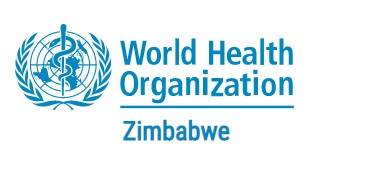Zimbabwe has an annual average population growth of 1.5% and high burden of communicable and non-communicable diseases. The rising demand for healthcare services has put pressure on available health workforce. In addition, health systems for low-income countries like Zimbabwe face challenges in critical areas of human resources for health (HRH), such as quantity, size, absorption of health workers, geographic and health facility level distribution of health workers, skill mix and health workforce management capacity.
It is with this background that WHO agreed to a collaborative initiative with Africa University with the aim to deliver evidence-based recommendations for fortifying health systems and improve training of human resources for health at training level.
“We welcome and appreciate the opportunity to collaborate with WHO and also converse on areas such as research on NCDs, support for scholarships, and provision of training equipment which are key priorities for our institution,” said Africa University Dean of College of Health, Agriculture&Natural Sciences Professor Christian Ezeala.
The collaboration between Africa University and WHO represents a significant step towards addressing the healthcare challenges faced by countries with high disease burdens in Africa. Through such collaborations, academia can understand the current trends in health labour market and provide valuable insights into the dynamics of the health workforce. Research indicates that investing in human resources is a key driver in strengthening health systems and improving healthcare delivery, particularly in countries grappling with high disease burdens. This collaboration will enable development of targeted strategies to address shortages, improve distribution, enhance skill mix, retain health workers, and mitigate migration. This collaborative effort will contribute to building stronger and more resilient healthcare systems that can effectively combat prevalent diseases and promote the well-being of communities in Zimbabwe and across the continent.
The recent Health Labour Market Analysis (HLMA) conducted by WHO, as presented by Healthier Populations Cluster Lead Dr. Trevor Kanyowa on behalf of the Representative to Zimbabwe Professor Jean-Marie Dangou, highlighted a concerning trend. Despite an annual production of 150,000 new health workers in Africa, the Region is projected to face a health worker shortage of 5.3 million by 2030.
For Zimbabwe, the number of public sector health workers has reduced by at least 4,600 since 2019 despite increased recruitment, due to attrition. He added that an estimated $960 million is required to sustain a health workforce in Zimbabwe that can respond to at least 80 percent of the health needs.
Following the analysis, recommendations were made to establish regulatory measures and non-monetary incentives for the health workforce, aimed at reducing the continuous depletion of this critical resource. The Government of Zimbabwe started implementing the recommendations.
"We are already observing positive outcomes," noted Dr. Kanyowa. "A new health workforce policy has been developed, increasing study leave slots for specialist training of health workers. Furthermore, the training of Primary Care Nurses has been expanded from 30 to 200 per annum to fill the gaps created by the emigration of nurses and midwives."
WHO reaffirms its commitment to support the Health System Strengthening in Zimbabwe and even beyond. This includes collaboration with academic institutions, which are responsible for production of Human Resources for Health.
Distributed by APO Group on behalf of World Health Organzation (WHO) - Zimbabwe.
Latest Stories
-
Spanish PM sorry for corruption scandal as opposition demands resignation
1 hour -
British man is only passenger to survive India plane crash
1 hour -
NSS ghost saga: Deputy AG Srem Sai says suspects willing to return over ¢560m and testify
1 hour -
NSS ghost names saga: Investigative report fingers 22 with over ¢560m set for recovery
2 hours -
GFA relieves Desmond Ofei as Black Satellites coach, focuses him on Black Stars
2 hours -
What does the Air India crash mean for Boeing?
3 hours -
US senator dragged out of LA immigration news conference
3 hours -
US orders 500,000 citizens of four countries to leave
3 hours -
Republic Day must be protected: A nation must not forget its true birth
3 hours -
Passion to Pouring: First luxury cocktail and music tasting experience debuts in Ho
3 hours -
Volta Okada Riders Association charts path for stronger leadership and legal recognition
4 hours -
Zoomlion contract: We don’t need a middleman – Manasseh urges assemblies to take control of sanitation
4 hours -
RFK Jr appoints new US vaccine advisers after sacking committee
4 hours -
Youth group urge Ghana Water Company to commission Damongo Water Project, condemns partisan delays
4 hours -
Sean ‘Diddy’ Combs’ lawyer makes his ex-girlfriend read loving texts until she cries
4 hours

